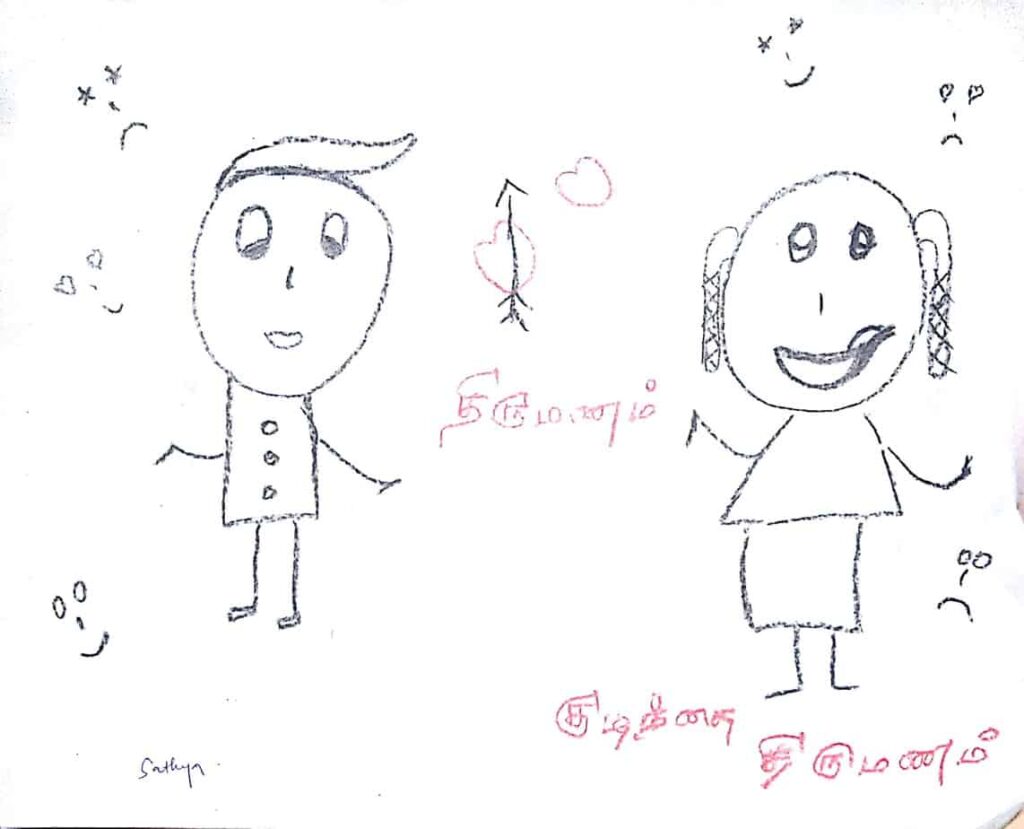Nearly 30 km away from Keezhadi, an archaeological excavation site in the Sivaganga district of Tamil Nadu, is a village called Alangulam. This was where my father was born and grew up for the most part of his life. This is the place I am supposed to call my ‘native’ home, though I have hardly ever visited the village.
However, the patriarchal culture and customs of the place were very much part of our home, no matter where that was. The place that was once ruled by Rani Velu Nachiyar, the first queen to fight for freedom against the British colonial power in India, also happens to be the place where women remain chained by patriarchal bonds.
Hailing from a culture that rarely prioritises education of girls and being the first-generation graduate in the family, taking a conscious decision to pursue a career in journalism and laying out my own path for growth in my career, was the very first time I experienced ‘freedom’ in its essence.
The privileged few
Over the years of my reporting journey in both rural and urban areas, I have realised that the freedom to choose what one wants to be or do in life is a privilege only a select few get to experience. Though that path can be filled more with thorns, especially when you are a woman.
Sitting on that privileged reporter’s chair, we often tend to overlook much that happens around us, treating that as ‘just news’. Except when something happens that jolts us out of our complacency and reminds us of the harsh reality of how lucky we got, as ‘this could have happened to us’.
One of those instances happened in a newsroom when news about the widespread practice of female infanticide in Madurai’s Usilampatti broke in 2021.
Naming the girl children ‘Podhum Ponnu’ (enough of the girl child) is still a common practice in the southern parts of Tamil Nadu. But the news about the practice of such infanticide really shocked me.
The taboo around women and menstruation can be seen across various cultures even today. Though the taboo around menstruation prevailed in my house too, having grown up for the most part of my life in a city, I was apalled to know that at least five villages in Madurai (Koovalapuram, Pudupatti, Govindanallur, Saptur Alagapuri and Chinnaiahpuram) built separate rooms at a considerable distance in a corner of the village to house menstruating women in the village. This is not ancient history but a media report from 2020.
This was also in Madurai, the place that worships Meenakshi Amman who once ruled Madurai.
Sometimes, knowing these stories of the past and witnessing their influence on present day social practices, makes me wonder what would have happened to India’s freedom struggle had Rani Velu Nachiyar fallen prey to female infanticide. Or to Madurai’s pride of being home to the the world-renowned Meenakshi Amman temple had Meenakshi Amman been banished to the corner during her menstruation.
Read more: Shimla study underlines the need for menstrual leave for women waste workers
Harsh reality

Over a year ago when I moved to Chennai, the state’s capital, I thought that the metropolitan city would be a place where women would have greater freedom, at least in terms of access to education. Little did I know that I was going to bear witness to a much worse scenario. From my field visits to many colonies populated by low-income communities, I observed that Chennai, which wears many historical and modern feathers in its cap, also sees an increasing trend of school dropouts and child marriages among girl children. This has become particularly commonplace after the pandemic outbreak.
Read more: How flawed eviction and resettlement are triggering child marriages in Chennai
Yet another common image I saw across different low-income settlements in Chennai was of the women cooking in wood stoves. For ages, we have been defining women’s freedom as ‘stepping out of the kitchen’. Yet, here we are pushing them back to the stone age with our poor economic policies.
As journalists, we bear witness to much that happens around us. On this 77th anniversary of India’s freedom, what are we bearing witness to? A bleak future particularly for women it would seem. Especially when seen through the eyes of the women of Manipur!